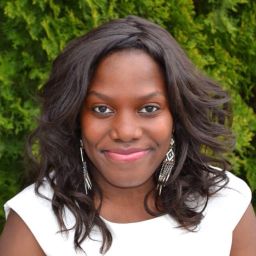Editor’s Note: Ola Ojewumi is an activist, journalist and a community organizer based in Washington. She founded two nonprofits, Sacred Hearts Children’s Transplant Foundation and Project ASCEND. She has written for the White House’s website, the online version of Marie Claire magazine and the American Association of University Women.
Story highlights
Ola Ojewumi: Disabled students often face unfair discipline, discrimination and restricted opportunities
They can succeed if educators, parents and employers give them a chance, Ojewumi says
It’s not always a label you’re born with. Sometimes, being disabled is something that happens to you over time, after years of living a healthy life.
This is precisely what happened to me.
It was a cold, fall day during fifth grade. Like most kids, I was preparing for my yearly physical and expecting to receive a clean bill of health. But in less than two minutes, the diagnosis of a rare heart condition changed my life forever.

I was blindsided. And as I matured, my illness only progressed. By the time I was 11, I had received both a heart and kidney transplant, turning me into a person living with multiple disabilities, such as limited mobility and chronic illness. This new identity brought a host of challenges and complexities I had never considered before.
My public school system officially identified me as disabled, but it treated me as able-bodied because I did not appear “sick” – my struggles were internal and not outwardly obvious. My illnesses caused a weakened immune system, resulting in missed classes for weeks at a time, which educators met with suspicion or resistance.
Despite doctor’s notes and parental explanations, the preconceived ideologies about hidden disabilities remained. When it came time to make up assignments, teachers tried to decipher if I was legitimately ill or just another truant student looking for a reason to get out of class or coursework.
A physical disability – invisible to the rest of the world – often caused me to be late to class. This unfairly resulted in detention and lower grades, ultimately affecting my ability to get into college.
Sadly, my story is not unique. The lives of disabled students all over the country are marred by similar challenges, ranging from unfair disciplinary practices, ineffective public education reform policies, underfunded special education programs, inaccessible school buildings and unfair discrimination.
Although the United States has established laws to enforce legal protections for the 56.7 million Americans living with disabilities, there are severe inequities felt within the walls of public schools, colleges and universities.
Special education programs are chronically underfunded in numerous states. Congress has barely fulfilled half of its commitment to fund 40% of special education costs, which shifts the burden to states already struggling to educate all students.
And as the number of special education students rise – these students now make up 13% of the public school population – public schools are scrambling to create academic programs that meet their needs.
According to the recently released 2015 Building a Grad Nation report, students with disabilities graduate from high school at a rate of 61.9% – almost 20 percentage points behind the national average – and they represent a disproportionate number of high school dropouts.
Furthermore, if students with disabilities can’t meet their school’s academic requirements, they are often funneled through the system with a certificate of completion instead of a diploma. This creates ineligibility to attain certain jobs and limits access to post-secondary education programs. As a result, only about 11% of disabled students proceed to attend college, and many remain unemployed.
And we aren’t just failing these students through inadequate education – we’re encouraging them to fail with low expectations. According to the Building a Grad Nation report, “More than 75% of students with a disability believe they will continue on from high school to postsecondary school, while only about 60% of parents expected their disabled child to do so.”
I know firsthand what this feels like.
Before my diagnosis, I dreamed of doing major things with my life, and others encouraged me to reach for the stars. But afterward, peers and adults told me to face reality and understand my limitations. I was told that I’d be lucky to graduate high school at all.
Most people expect that those of us with disabilities will never hold jobs or contribute to society, remaining completely dependent on government welfare or our families. As the majority of our nation’s young people head off to summer jobs and internships this month, many disabled millennials will once again be left behind or simply left out of the same opportunities.
Ultimately, though our disabilities might provide us with challenges, the real barriers arise when adults and society do not believe in or value us.
I’ve fought hard to show the world that disability does not mean inability, and I will never stop fighting for a future in which the identity of “doctor,” “lawyer,” “politician” and “global change maker” defines people like me more than the label of “disability.”
Educators, you have the power to instill courage within disabled students to defy their own expectations through mentorship and individualized education.
Parents raising disabled children should teach them their worth instead of their limits.
Employers, build workplaces that are more accommodating and be willing to give people with disabilities a fair shot – they might surprise you. From Franklin Roosevelt to Frida Kahlo, people with disabilities have changed and are actively changing the world.
I’ve learned that the label of disability is rarely something you’re born with. Too often, it’s something that other people decide for you. Though I sometimes feel the burden of my existence, I will not be bound by the limitations set before me, by those of my body or by those of this world.
I will continue to tell the world that when you lessen the opportunities and expectations of young people, their disability is not what’s crippling them. You are.
Follow us on Twitter @CNNOpinion.
